Earth Science: Plate Tectonics, Volcanoes, and Earthquakes
1/90
There's no tags or description
Looks like no tags are added yet.
Name | Mastery | Learn | Test | Matching | Spaced | Call with Kai |
|---|
No analytics yet
Send a link to your students to track their progress
91 Terms
Most of the earth's mass is contained in the
mantle.
In a Hawaiian volcanic eruption the ropy type lava flow iscalled
pahoehoe
The Sierra Nevada in California is a classic example of
faulting and upthrust.
The scientist who first provided supporting evidence forthe idea of continental drift was
Wegener
The oldest parts of the seafloor usually are found where?
Trenches
What type of strain occurs when rock units are molded orbent under stress and do not return to their orginal shapeafter the stress is released?
Plastic Strain
A tsunami with a wave length of 500 ft would bemost dangerous in which location?
In a row boat in 10 feet of water
Which of the following locations would be mostlikely to experience an earthquake?
All could or have had an earthquake.
Which of the following was not a test for identifyinga mineral?
All were used
What is an arch shaped fold called?
Anticline
Type of fault pictured?
reverse fault
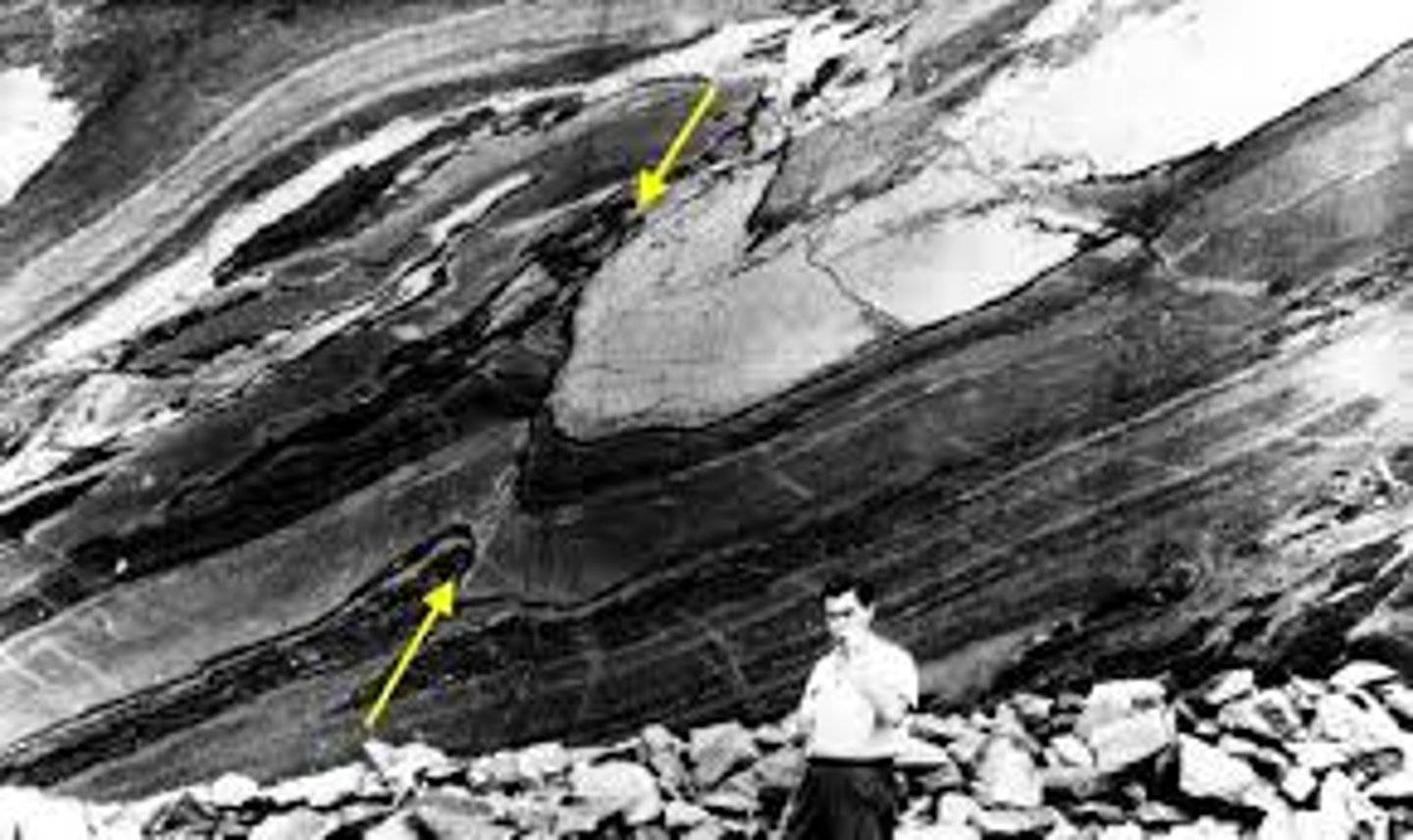
What type of fault is pictured below?
normal fault
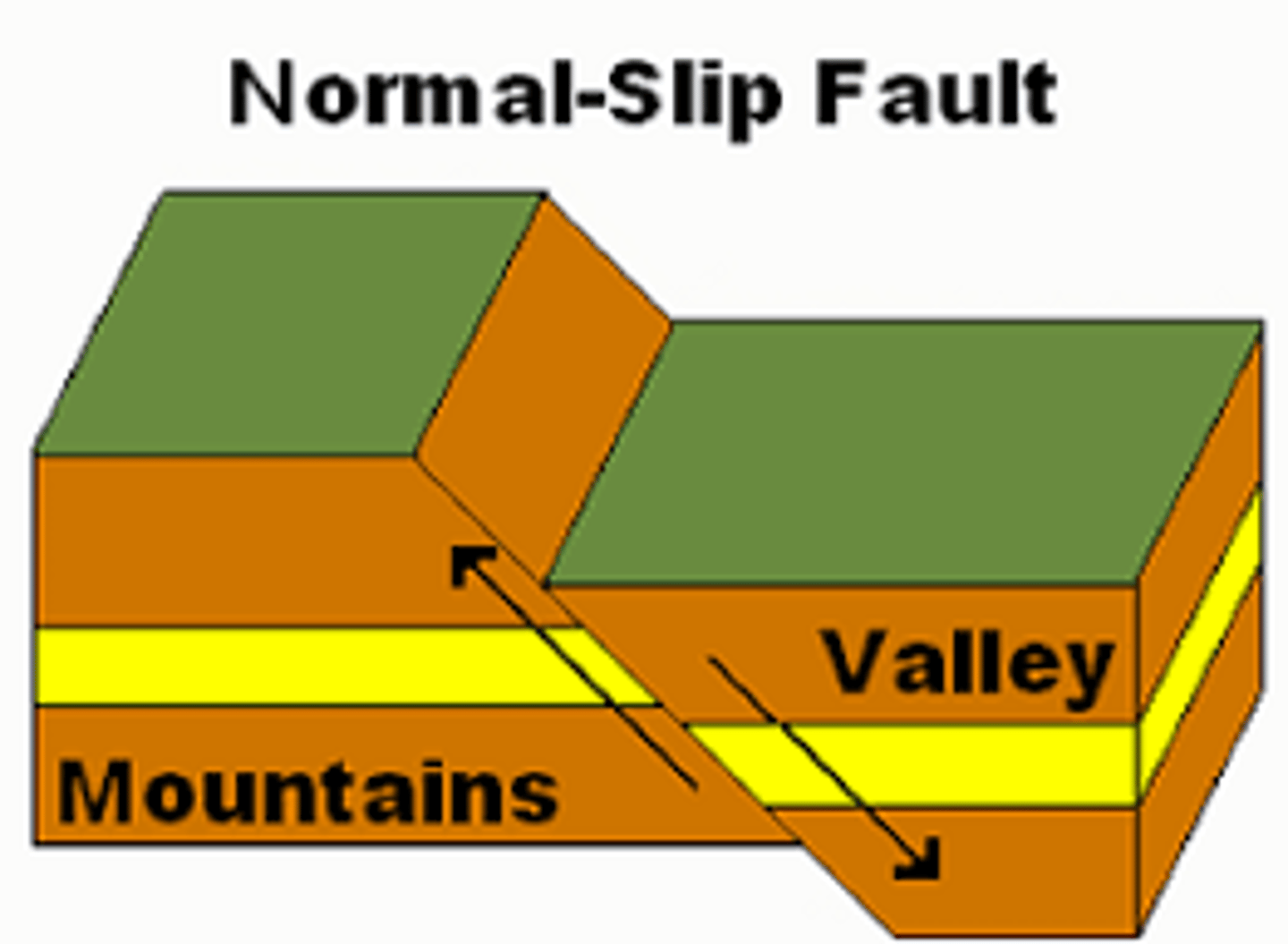
Name structure pictured below.
Horst
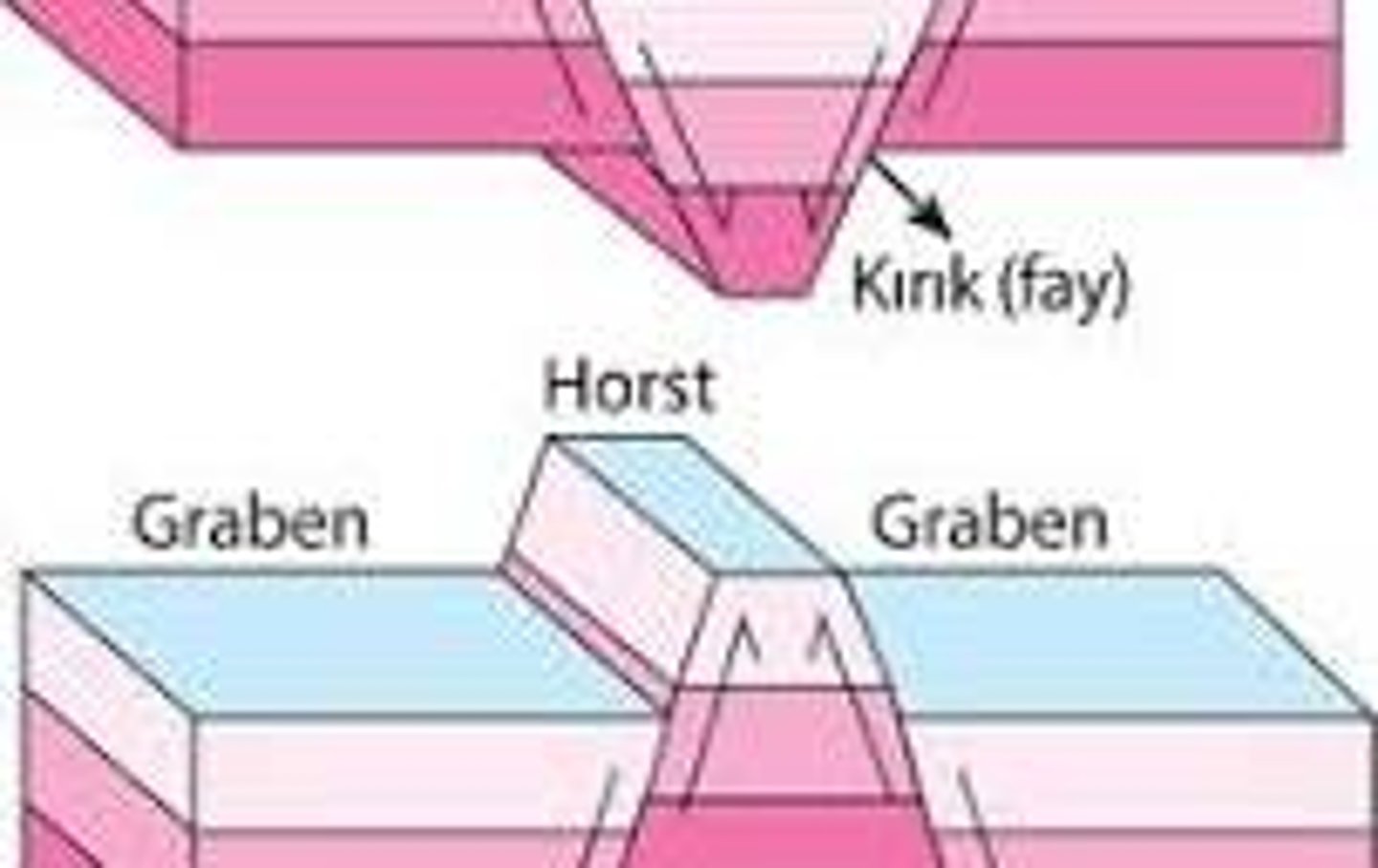
Reverse faulting probably resulted from whichtype of stress?
compressional stress
The difference between a joint and a fault is
all of them
What type of volcano is pictured below?
Composite Volcano
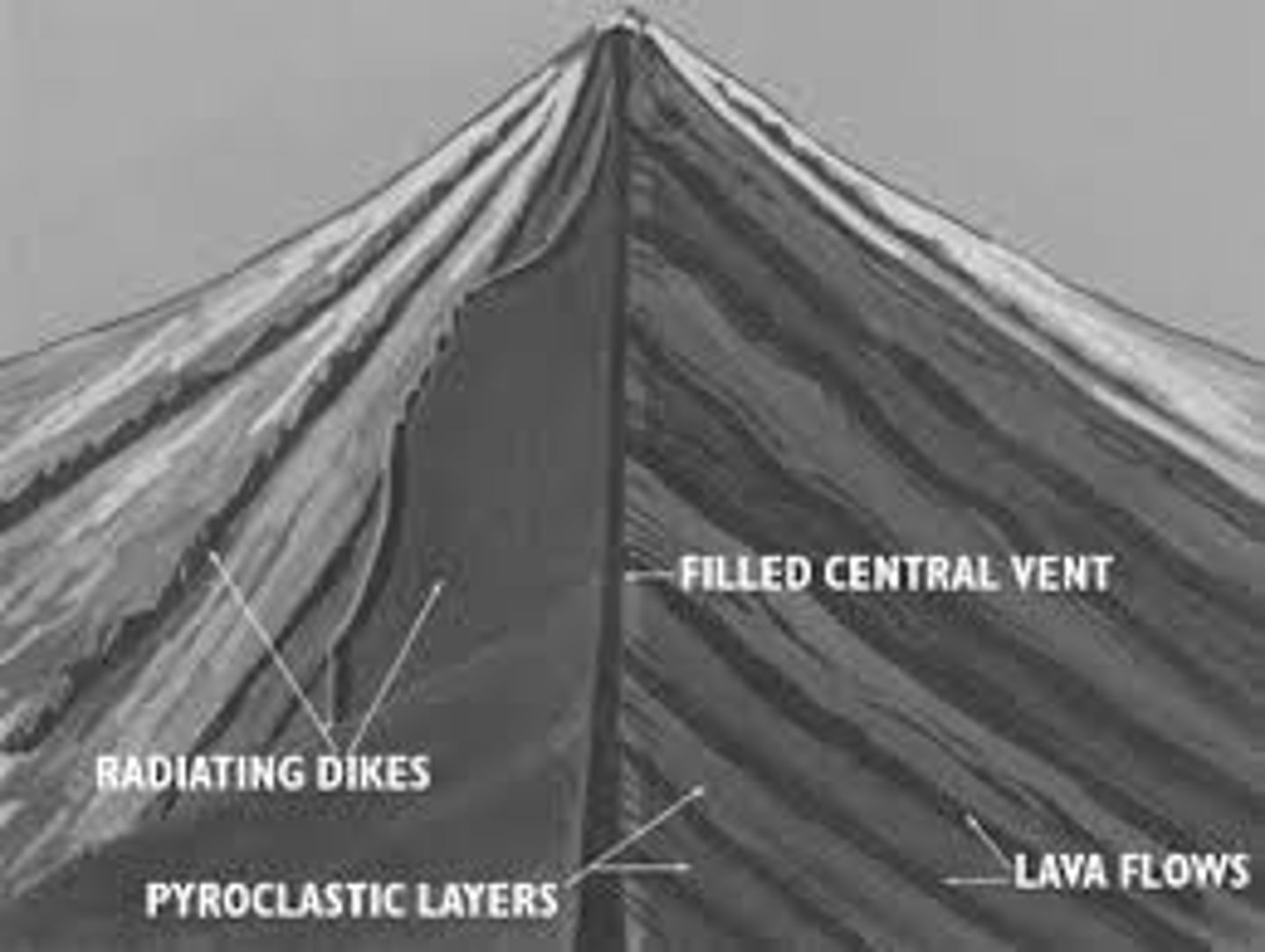
What type of volcano is pictured below?
cinder cone
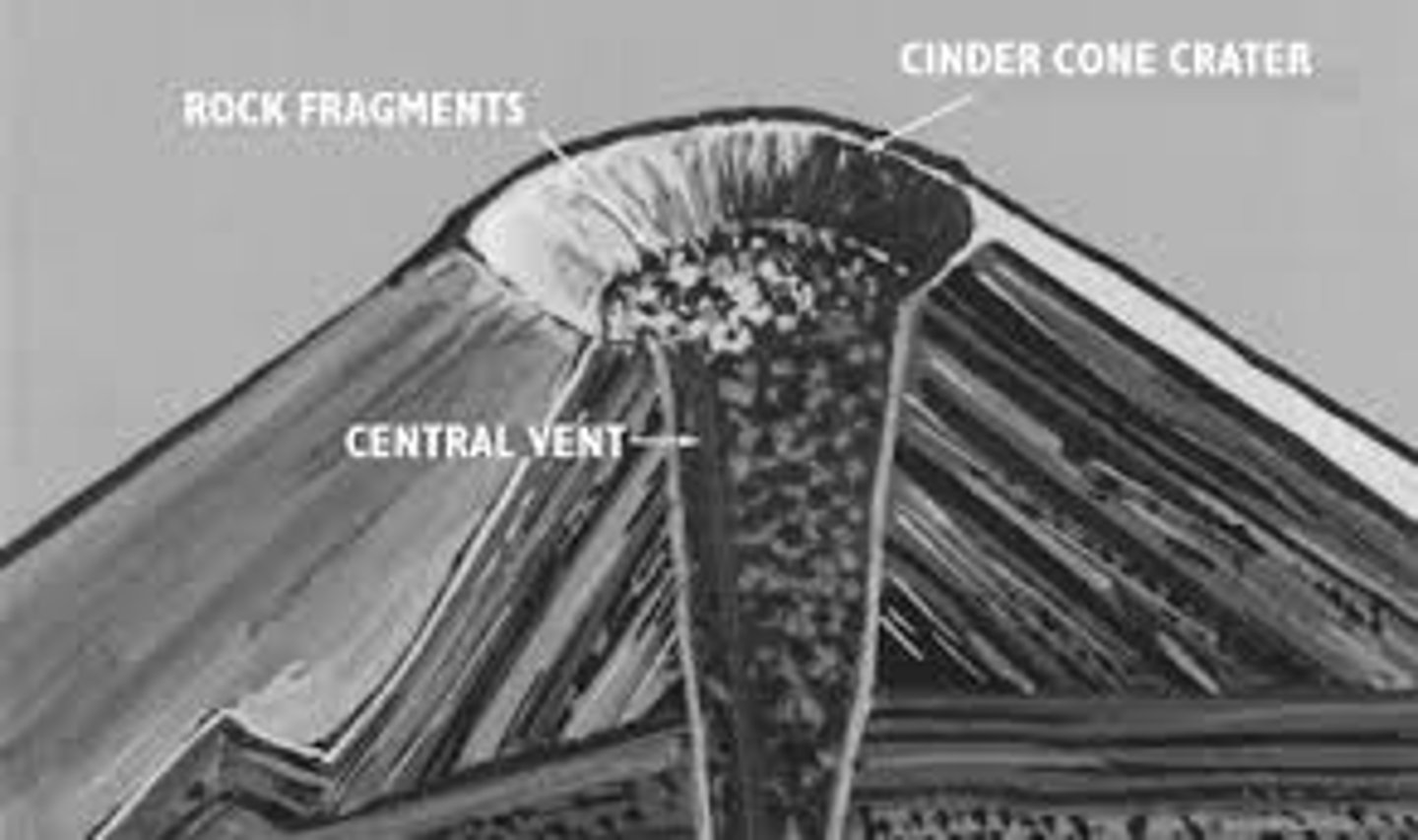
Type of volcano pictured below?
Shield Volcano...Mauna Loa
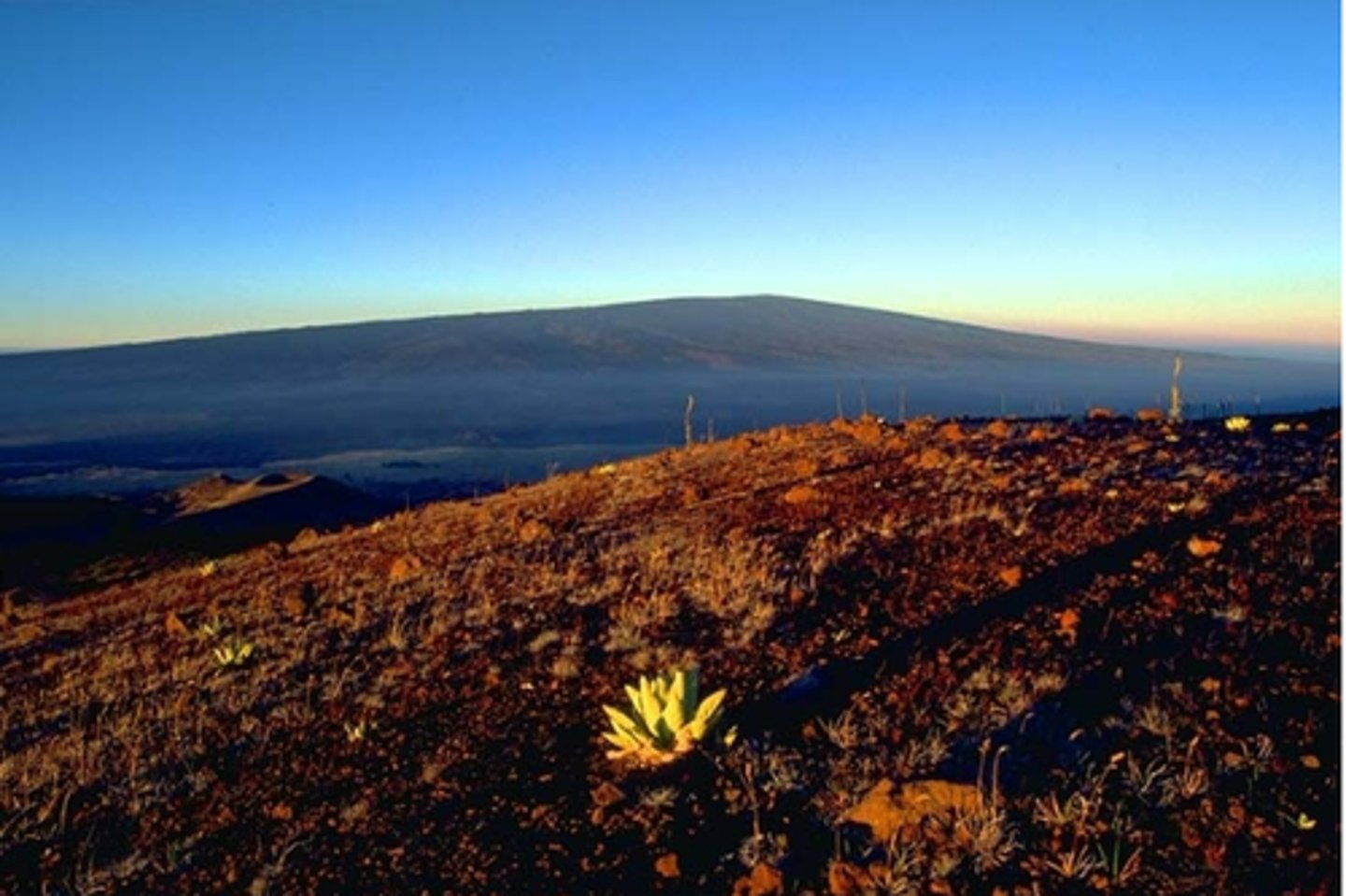
What type of plate boundary would you find thevolcano just mentioned?
Not on a plate boundary....hot spot volcanism
List the types of waves sent out from an earthquake.
• P-Waves
• S-Waves
• Surface waves
The Grand Teton Mountains of Wyoming are what type of mountains?
Fault Block Mountains
Describe how oceanic trenches are formed.
Oceanic trenches occur where oceanic crust is beingsubducted into the mantle.
During an earthquake, energy radiates in alldirections from its source. This source is called the
The focus
What happens when oceanic crust collides withcontinental crust?
The denser oceanic crust is subducted beneath thecontinental crust.
Which seismic wave would you most likely detectfirst at a recording station?
P-waves
Describe how a P waves move and what they movethrough.
Move in a push-pull motion (compressional) and they movethrough solids and liquids.
Describe the current idea of what drives themovement of the lithospheric plates.
Convection currents in the mantle.
Which one of the following statements concerningpaleomagnetism is False?
Geomagnetic reversals cause the movements ofthe plates
The supercontinent composed of all thecontinents proposed by Alfred Wegener is called?
• Pangaea
Most of Earth's seismic activity, volcanism, andmountain building occur along______.
Plate Boundaries
Type of plate boundary responsible for theHimalaya mountains?
Continent-Continent Convergence
Type of plate boundary responsible for the SanAndreas Fault?
Transform Boundary
Where are the oldest rocks on Earth found?
On the continents
What is the most common type of rock foundon Earth?
Igneous Rocks
Describe the rock cycle.
rocks are broken into sediments... sediments are compacted and form rocks... changed heat, pressure or fluids... magma forms when rock melts beneath surface.. magma cools and forms igneous
A huge block of rock that is bounded by normalfaults and drops down
Graben
The most common rock type in the Earth's crustis?
Igneous
What is the main difference between a joint anda fault?
Movement along a fault, a joint is just a breakwithout displacement.
What type of fault is the San Andreas Fault?
Transform boundary
When weathered rock materials are pressedand cemented together they form what type of rock?
Sedimentary
What two elements occur most frequently inminerals found in the crust?
Silicon and Oxygen
What is a sill?
A sill is a tabular shaped intrusive rock that formedwhen magma moved into the plane of contactbetween sedimentary rock layers.
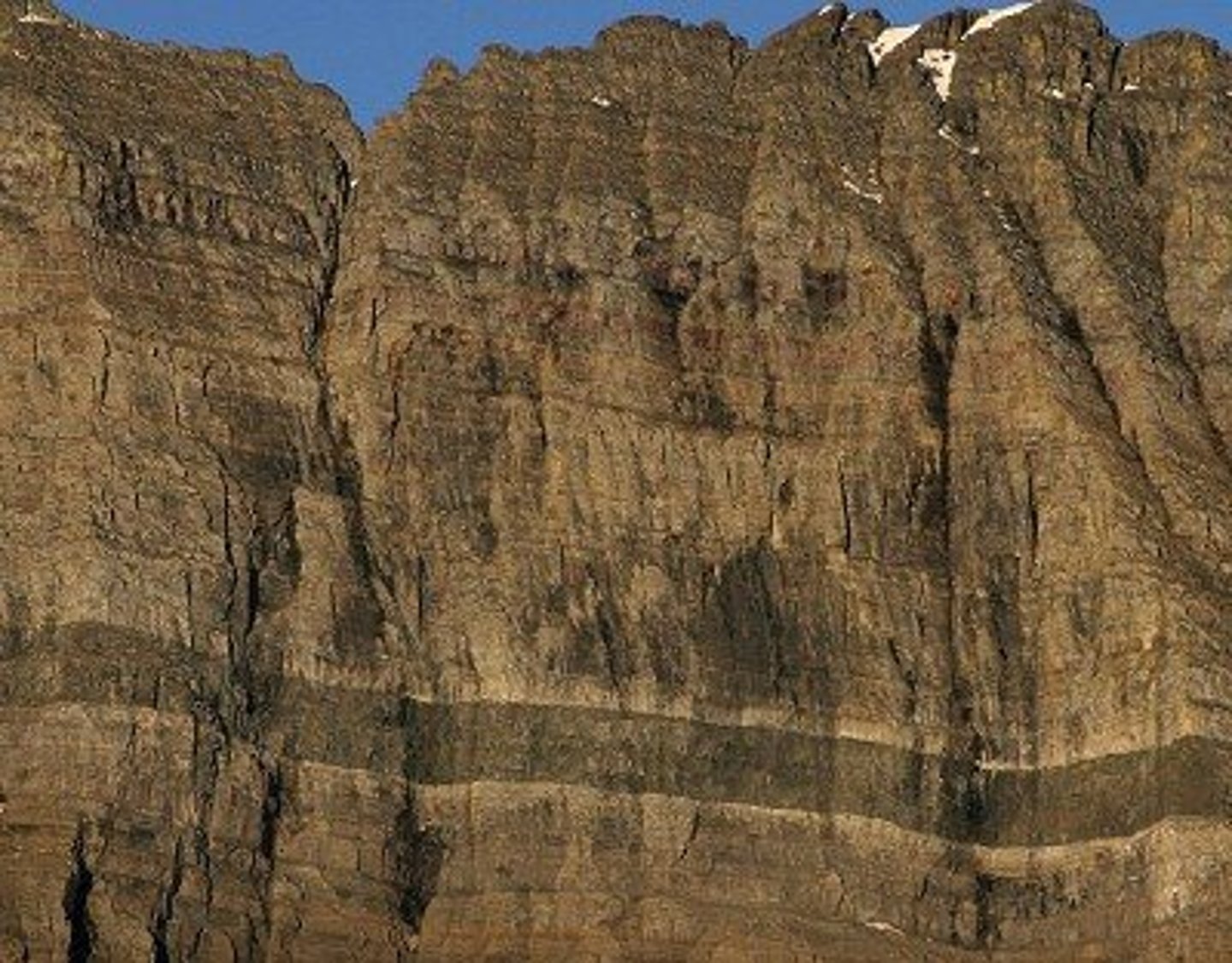
What is the most useful clue to identifying amineral?
Crystal Structure
What don't nonferromagnesian silicatescontain? (why they are named this)
Do not contain iron and magnesium.
An earthquake with a magnitude of 4 releaseshow much more energy compared to an earthquakeof magnitude 2?
100 x
Most earthquakes on Earth are
Shallow focus
What type of plate boundary would you expectan oceanic trench, a chain of volcanic mountainsalong the continental edge and deep seatedearthquakes?
Ocean-continent convergence
What is the principle of uniformity?
Changes affecting earth today are the same as inthe past.
A ____ is a solid aggregate of one or moreminerals that have been cohesively broughttogether by a rock-forming process
rock
According to plate tectonics, new crustalmaterial is created at
divergent plate boundaries.
Japan is a group of arc islands associated with
the convergence of two oceanic plates
Which one of the following islands was formed as aresult of volcanic activity along a mid-ocean ridge?
iceland
At a divergent plate boundary, lithospheric plates:
Grind past each other
• Collide with each other
• Rift apart
• Move under each other
The San Andreas fault between the Pacific andNorth American plates is an example of a:
• Transform fault boundary
What happens when oceanic crust collides with continental crust?
The heavier oceanic crust is subducted into theearth's mantle
Oceanic trenches are formed by:
The subduction of oceanic crusts into the earth'smantle
Volcanic activity in the Cascade Mountains of America'sPacific Northwest is associated with a(an):
Ocean-continent convergent plate boundary
The sea floor of the Pacific Ocean is:
Getting smaller
Mountains located in the interior of lithospheric plates, such as the Urals and the Appalachians, are thought to have formed as a result of:
Ancient continent-continent plate convergence
The Himalaya Mountains are believed to be thecurrent location of a(an):
Continent-continent convergent plate boundary
The rigid layer of the earth's crust and the upper mantle together form the:
Lithosphere
The asthenosphere is best described as:
Semi-molten and a plastic layer in which thelithosphere is embedded.
What was Alfred Wegener's explanation for 300-350million year old (Paleozoic) glacial deposits (or till) in areas near the equator?
The continents were once located near the earth'spoles.
According to Alfred Wegener, 250 million year old mountains in Eastern North America are likely to be similar to those in:
Europe
Which one of the following was NOT presented by Alfred Wegener as evidence of continental drift?
Paleomagnetism
The supercontinent composed of all thecontinents proposed by Alfred Wegener is called:
Pangaea
Which one of the following statements concerning paleomagnetism is FALSE?
Geomagnetic reversals cause the movements ofplates.
The diagram above shows:
An ocean-continent convergent plate boundary
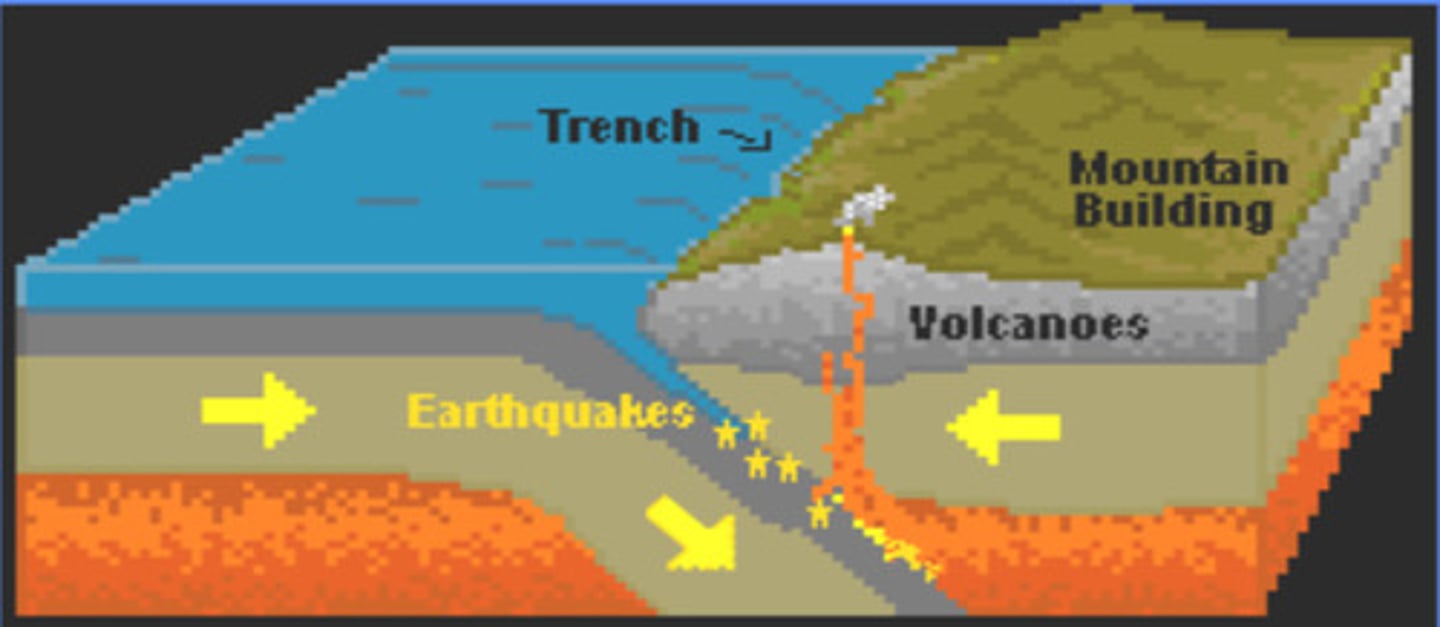
The diagram above shows:
A divergent plate boundary
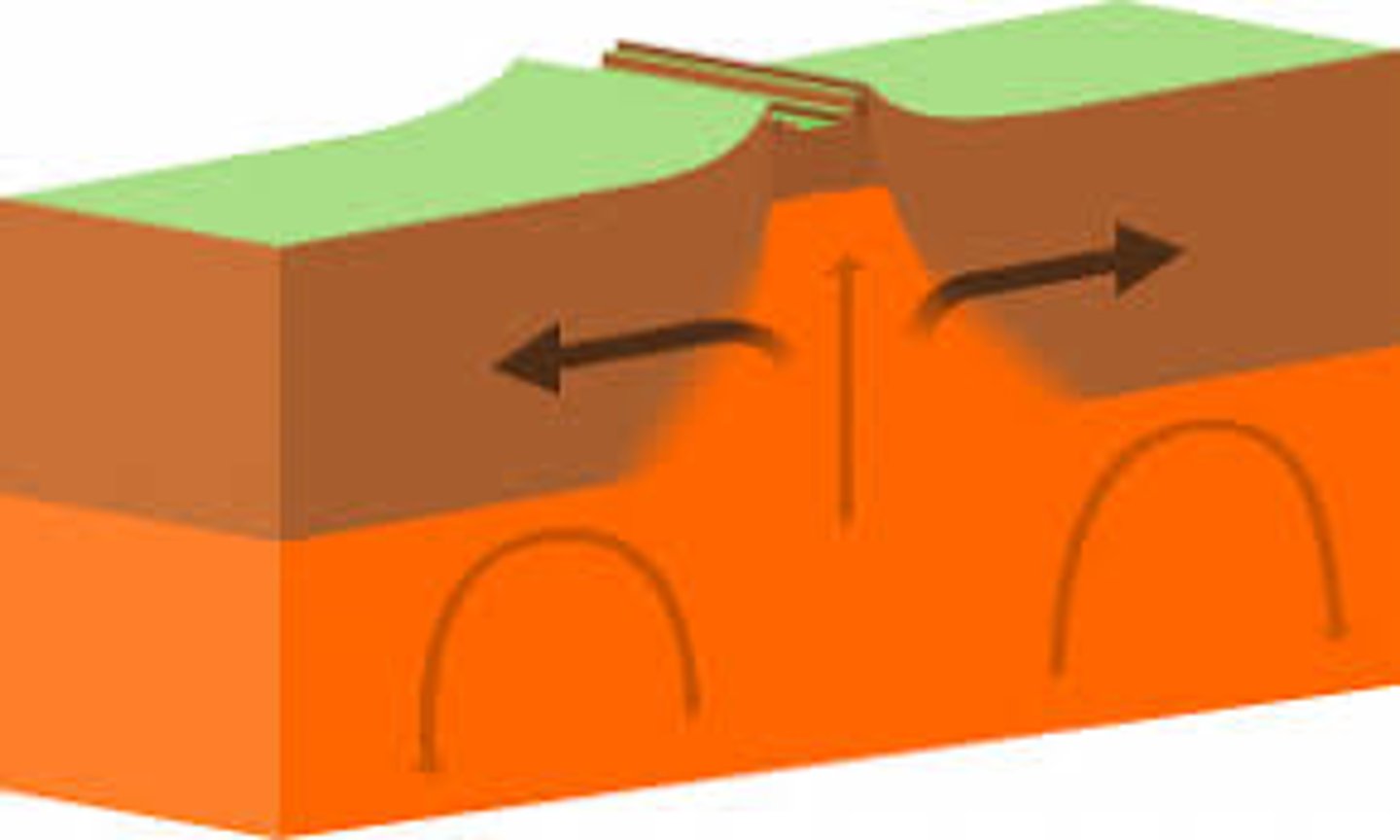
The diagram above shows
A continent-continent convergent plate boundary
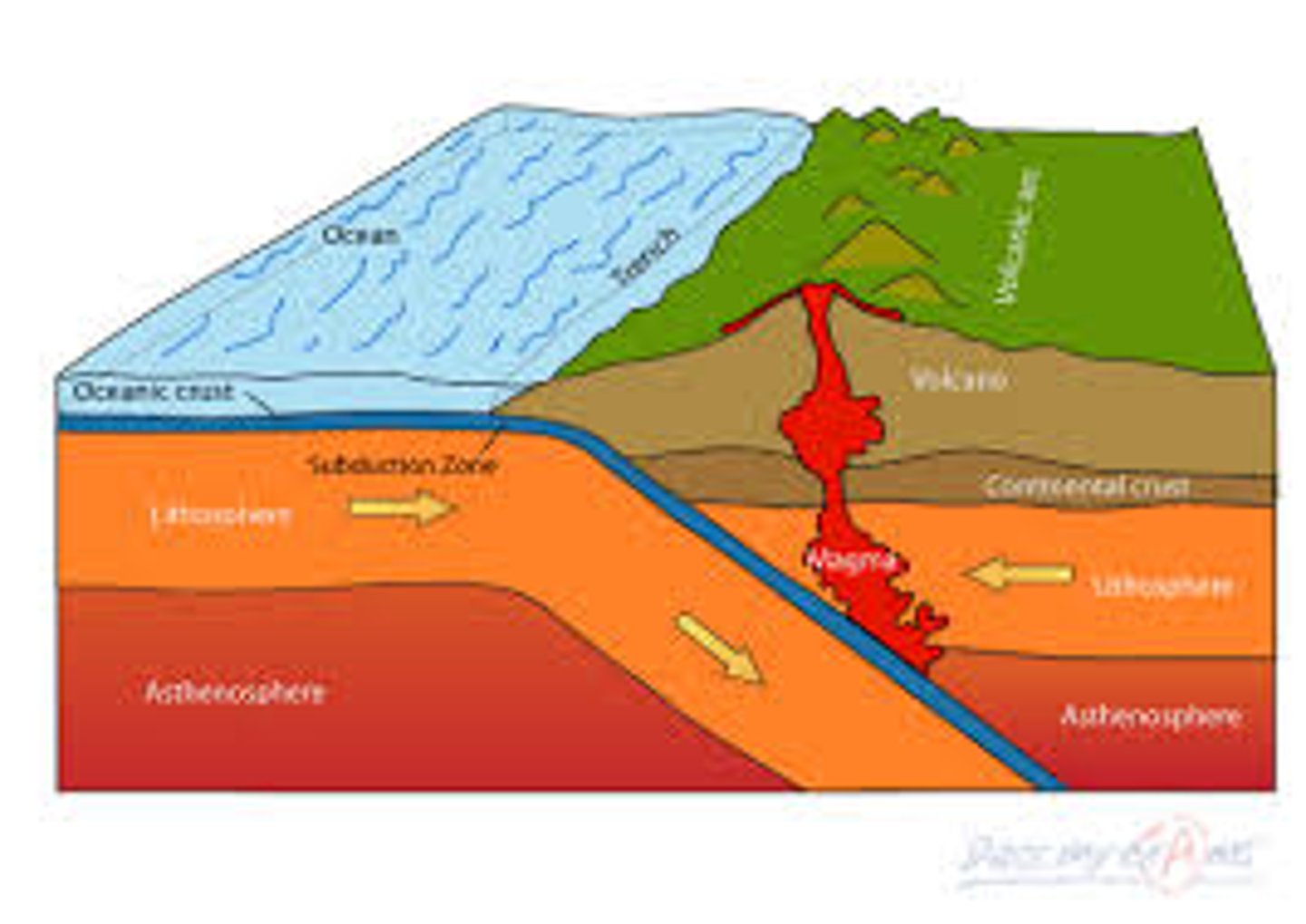
The Columbia Plateau in Washington, Idaho andOregon
is made of many layers of basalt
Which of the mountain-building processes ismost responsible for the features of the RockyMountains?
compressional folding.
Which of the mountain-building processes ismost responsible for the features of the RockyMountains?
compressional folding.
Seismic waves are produced when rocks
rupture or break under stress
If you are inside a building when an earthquakeoccurs, the best strategy is to
seek protection under a table or desk.
_____ has a hardness of 2, is easily scratched by a fingernail.
gypsum
________ an instrument that measures and records seismic wavedata
Seismograph
A vibration that moves through the Earth.
seismic waves
About how many minerals are common in the earth's crust?
20
The ____ of South Dakota were produced by a broad folding archcalled a dome.
Black Hills
The evidence that earth's core is part liquid or acts lika a liquidcomes from (the
S-wave shadow zone.
When subjected to stress, rocks at great depths and hightemperature tend to undergo
plastic strain.
The oldest rocks are found in
continental crust
An arch-shaped fold resulting from plastic deformation is called
an anticline.
The material that makes up the crust is called
Sial
Weathered sediments are pressed and cemented to form
sedimentary rocks.
The _____ are made of silicon and oxygen and make up 92 % ofEarth's crust.
silicate
The earth's crustal layer is
• thicker under the continents than beneath the oceans.
• is composed largely of rocks rich in aluminum and silicon
.• less dense than the mantle material.
Fine grained
consisting of tiny crystals too small to see with the naked eye
Seismograph
A device that records ground movements caused by seismic waves as they move through Earth
Richter scale
A scale that rates an earthquake's magnitude based on the size of its seismic waves.